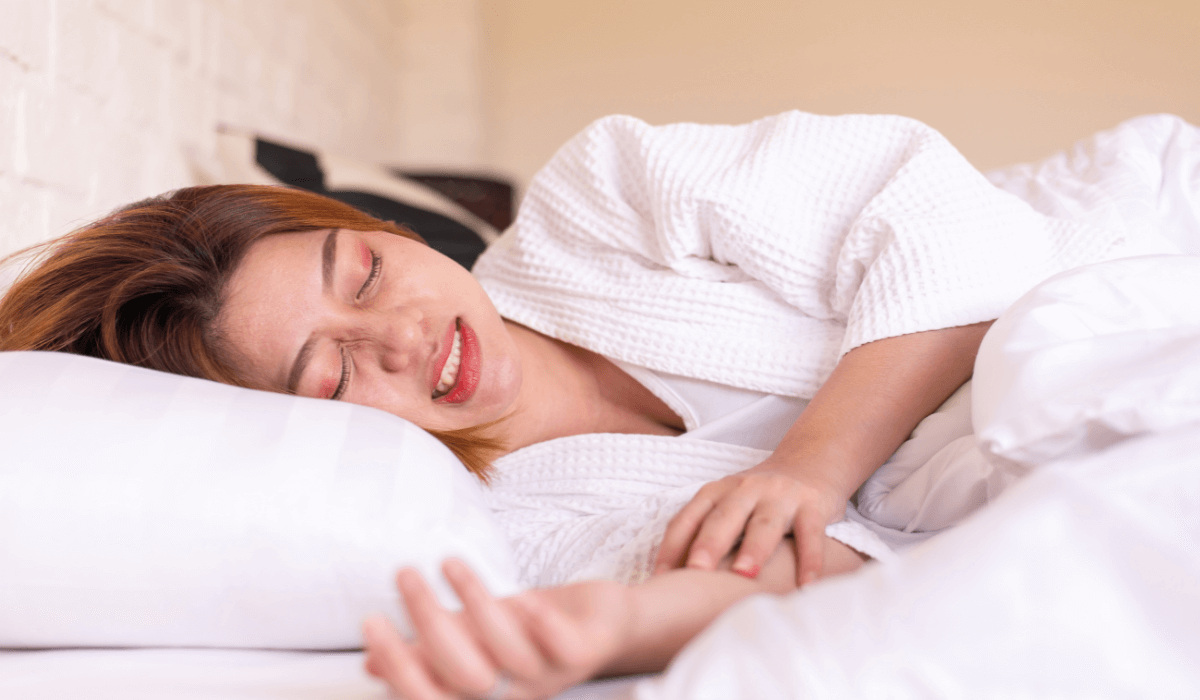How to Stop Grinding Teeth in Sleep Naturally

Grinding teeth during sleep, also known as bruxism, is a common condition that can lead to significant dental problems and discomfort. While there are many treatments for bruxism, natural remedies are a popular choice for those who prefer a non-invasive approach. In this article, we’ll explore some natural ways to stop grinding teeth in sleep and say goodbye to bruxism for good.
What is Bruxism?
Bruxism is a condition in which a person grinds or clenches their teeth, usually during sleep. It is estimated that bruxism affects around 8-31% of adults, and can lead to dental problems such as worn teeth, tooth sensitivity, and jaw pain.
Symptoms of Bruxism
Symptoms of bruxism may include:
• Grinding or clenching of teeth
• Worn, flattened, or chipped teeth
• Tooth sensitivity
• Jaw pain or stiffness
• Headaches
• Earache
• Disrupted sleep
Causes of Bruxism
The exact cause of bruxism is unknown, but it is thought to be related to a combination of physical, psychological, and genetic factors. Some possible causes of bruxism may include:
• Stress and anxiety
• Sleep disorders
• Medications
• Abnormal bite or crooked teeth
• Alcohol and drug use
Natural Remedies for Bruxism
If you suffer from bruxism, there are many natural remedies you can try to help reduce or eliminate the symptoms. Here are some natural remedies for bruxism that you can try at home:
1. Manage Stress and Anxiety
Stress and anxiety are common triggers for bruxism. To manage stress, try relaxation techniques such as deep breathing, meditation, or yoga.
2. Limit Alcohol and Caffeine Intake
Alcohol and caffeine can worsen bruxism symptoms, so it’s best to limit or avoid them altogether.
3. Use a Warm Compress
Applying a warm compress to the jaw before bed can help relax the muscles and reduce grinding.
4. Massage the Jaw Muscles
Massaging the jaw muscles can help relieve tension and reduce grinding.
5. Practice Good Sleep Habits
Good sleep habits, such as sticking to a regular sleep schedule and creating a relaxing sleep environment, can help reduce bruxism.
6. Use a Mouthguard
Using a mouthguard while sleeping can help protect the teeth and reduce grinding.
7. Try Acupuncture
Acupuncture, a traditional Chinese medicine technique, may help reduce bruxism symptoms by targeting the muscles in the jaw and face.
8. Use Essential Oils
Some essential oils, such as lavender and peppermint, have calming properties and can help reduce stress and anxiety that may be triggering bruxism.
9. Drink Herbal Tea
Drinking herbal teas such as chamomile or valerian root tea before bed can help promote relaxation and reduce grinding.
10. Practice Jaw Exercises
Jaw exercises, such as opening and closing the mouth slowly and moving the jaw side to side, can help relax the muscles and reduce grinding.
11. Change Your Sleeping Position
Sleeping on your back can sometimes worsen bruxism symptoms, so try sleeping on your side instead.
12. Seek Professional Help
If natural remedies are not effective in reducing your bruxism symptoms, consider seeking professional help from a dentist or sleep specialist. They can offer additional treatment options, such as medication or therapy.
Are there any medications that can help with bruxism?
Yes, there are some medications that can help with bruxism. Here are a few examples:
1. Muscle Relaxants
Muscle relaxants such as benzodiazepines can help relax the muscles in the jaw and reduce grinding and clenching. However, these medications can be habit-forming and should only be used under the guidance of a healthcare professional.
2. Botox Injections
Botox injections can help reduce muscle activity in the jaw and face, which can in turn reduce bruxism symptoms. However, this treatment is not permanent and will need to be repeated every few months.
3. Antidepressants
Antidepressant medications such as selective serotonin reuptake inhibitors (SSRIs) may be prescribed for bruxism in some cases. These medications can help reduce anxiety and stress, which are common triggers for grinding and clenching.
It’s important to note that medication should not be the first line of treatment for bruxism. Natural remedies and lifestyle changes should be tried first, and medication should only be considered if these approaches are not effective or if the bruxism is causing significant damage to the teeth or jaw. Additionally, any medication should only be taken under the guidance of a healthcare professional.
Can bruxism cause permanent damage to my teeth?
Yes, bruxism can cause permanent damage to your teeth if left untreated. The constant grinding and clenching can wear down the enamel on your teeth, making them more susceptible to decay, sensitivity, and even fractures. In severe cases, bruxism can also lead to jaw pain and temporomandibular joint (TMJ) disorders.
If you suspect that you may be grinding or clenching your teeth, it’s important to seek treatment from a healthcare professional. Your dentist can examine your teeth and jaw for signs of bruxism, and may recommend a custom-fit mouthguard to protect your teeth from further damage. Additionally, addressing underlying stress or anxiety may help reduce bruxism symptoms.
Conclusion
Grinding teeth during sleep can be a painful and frustrating experience, but there are many natural remedies you can try to help reduce or eliminate the symptoms. Managing stress, limiting alcohol and caffeine intake, using warm compresses, massaging the jaw muscles, practicing good sleep habits, and using a mouthguard are all effective natural remedies for bruxism.
RECENT ARTICLES
